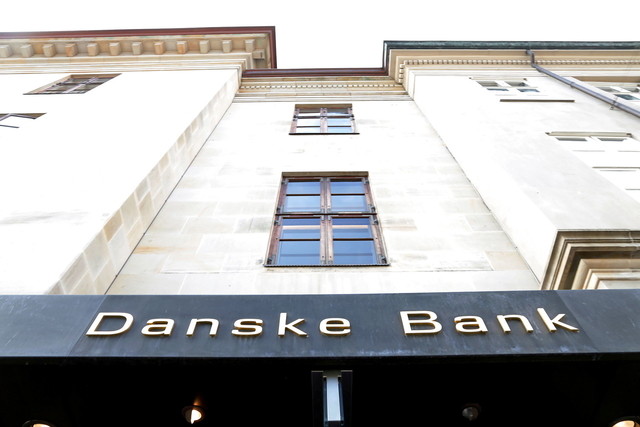On January 1st, a new law came into effect requiring foreign workers in Denmark to have a Danish bank account.
Previously, the law only applied to residents with work permits under either the ‘Pay Limit’ (beløbsordningen in Danish) and ‘Fast Track’ schemes. Now, it applies to residents under a wide variety of schemes, including skilled workers, researchers, farm managers, interns, and more.
Why was the regulation adopted?
According to the Danish Agency for International Recruitment and Integration (SIRI), the intention behind the requirement is to strengthen SIRI’s ability to “monitor whether employees do in fact receive the salary stated in the employment contract.”
But, employers say the legislation creates one more hurdle to hire internationals who are very much in-demand for some of the industries that have experienced growth during Covid-19, such as pharmaceuticals and IT.
“The more requirements you place on employers recruiting internationally, the less appealing it becomes for both parties,” Søren Kjærsgaard Høfler told The Local. He’s a political consultant in global mobility at Dansk Industri (DI), an organisation representing approximately 18,500 companies across Denmark.
He said the catalyst for the new extension of the requirement was a series of cases surfacing in 2019 where several restaurants were exploiting the Pay Limit scheme, which requires employees to make a certain amount (445,000 kroner per year in 2021).
The restaurants were paying the appropriate sum into the employee’s bank account, but the total payment was later divided among several employees, rather than going toward the person holding the Pay Limit Scheme permit.
READ ALSO:
- Opinion: Danish odds are stacked against skilled foreign workers
- The Local contributor finds work, can stay in Denmark after employer reads article
- Is the Danish work visa law to blame for Chinese chef living in Copenhagen restaurant’s storage room?
“That situation was absolutely one that needed to be dealt with,” Høfler said, “but the way they chose to deal with it was to add an unnecessary obstacle to all labor schemes.”
How is it impacting companies hiring internationals?
Philip Wiig, Denmark’s managing director for global consulting firm Accenture, told The Local the requirement has negatively impacted its operations.
“It’s one of many tripwires that make it difficult to bring qualified people into Denmark,” Wiig said. Although Covid has put a temporary pause on the issue, he added, as international hiring begins to return to pre-pandemic levels, it will be an issue once again.
Accenture has had several employees get fed up with the process and choose not to come to Denmark. Several others weren’t able to get a bank account set up in the specified time frame, for one reason or another.
The bank account must be created no later than 90 days after the date a residence and work permit is granted or 90 days after the employee enters Denmark, whichever happens last.
The fact that newcomers are granted three months to set up a Danish bank account, Høfler said, is a result of the challenges one faces when setting up a Danish bank account.
“The issue with the Danish bank account is that it is not as easy to obtain as it sounds,” Høfler said. “It can take months as part of a larger process when entering Denmark.”
Why might it be difficult to set up a bank account in 90 days?
“In order to comply with the anti-money laundering rules, the Danish banks must know the identity of their customers,” Kjeld Gosvig-Jensen, executive director of legal at Finance Denmark, told The Local. “Banks must know the name and civil registration (CPR) number of a customer and obtain evidence in this respect, for instance, a copy of a customer’s passport and national health insurance card.”
READ ALSO: Is life in Denmark impossible without a personal registration number?
However, a CPR number can only be obtained after arrival in Denmark with proof of address. Finding an apartment or house can take time, and then the wait for CPR number can be up to six more weeks.
Additionally, when the requirement of a Danish bank account for Pay Limit and Fast Track employees was first announced in 2017, stricter legislation to prevent money laundering had made banks more cautious about setting up accounts for foreign employees.
Denmark’s largest bank, Danske Bank, was at the epicenter of the third-largest money laundering scheme in the world. Billions of euros were laundered through its operations from February 2007 and January 2016. Non-resident bank accounts were at the heart of the scandal.
“It’s no surprise Danish regulators and the banks themselves are apprehensive when it comes to opening non-resident bank accounts,” writes GlobalBanks, a platform covering banking solutions around the world, to which the Danish Financial Supervisory Authority directed The Local.
This prompted Finance Denmark, a trade organisation for Danish banks, to send out a letter to financial institutions notifying them that they are obliged to create accounts for foreign nationals that are entitled to work in Denmark.
And what about getting paid in those first 90 days?
According to SIRI, a foreign employee’s salary can be paid to a foreign bank account during your first 90 days in Denmark.
However, this isn’t clearly understood by all employers, who may be nervous to risk finding themselves afoul of the requirement (GlobalBanks’ own guidance got this fact wrong).
“Some companies will try to pay salary into a foreign account until the Danish account is set up,” Høfler said, while others might prefer to wait for fear of finding themselves afoul of the requirements.
Are there any exemptions to the bank account requirement?
The requirement doesn’t apply to you if you are a foreign national covered by EU-regulation, including the Assocation Agreement with Turkey, nor does it apply to accompanying family members.
Additionally, residence permits granted under the Positive List for highly educated workers, the researcher scheme, and the researcher track within the Fast Track scheme are exempt, if the employment doesn’t exceed 180 days in a 12-month period.
However, Wiig and Høfler think it should apply to all schemes and be extended to 12 month stays. For Accenture, even short-term engagements are often longer than 180 days.
“It’s important to know that most companies consider a short term posting anything less than 12 months,” Høfler said. During short term postings, it’s common for the employee to maintain their home, family, and other commitments in their home country.
“In these circumstances, the person prefers – and in some cases has to – keep all expenses including payroll in the home country,” Høfler said. Getting paid into a Danish bank account can also have unforeseen implications on certain social benefits and rights in their home country, he added.
“We often hear that companies now reduce their short-term postings to less than 180 days or else drop it altogether,” Høfler said. “Then Denmark loses out on that worker, that knowledge, and that tax revenue.”
What’s the bigger picture here?
“The real question here is, does the bank account requirement actually solve the issue?” Høfler asked. When asked, SIRI said it didn’t have data on the requirement’s effectiveness at this time.
Høfler and Wiig think the requirement was too broadly implemented and has resulted in unforeseen consequences.
“I fully support trying to address the issue of exploitation, but this requirement is a very blunt instrument that applies to everyone rather than addressing the issue specifically,” Wiig said. “There’s a lot of collateral damage with this as it is.”
Høfler hopes for fresh discussion of the requirement this fall, when Denmark’s parliament opens its annual negotiations to discuss the upcoming year’s finances.
“I don’t think the government’s intention was to create an obstacle to international recruitment,” Høfler said, adding that international labour comprises 10 percent of Denmark’s work force. “The requirement will hopefully come up again this fall, since we are looking into how to strengthen our labour market. One way to do this will be improving the recruitment of highly skilled international labour, which includes eliminating unnecessary requirements like the Danish bank account on all labour schemes.”
“Denmark strives to be seen as a country that invites the best minds from around the world,” Wiig said. “When we put in these tripwires that make it more difficult, we find that the reality doesn’t match our vision of what Denmark aims to be.”



 Please whitelist us to continue reading.
Please whitelist us to continue reading.
Member comments